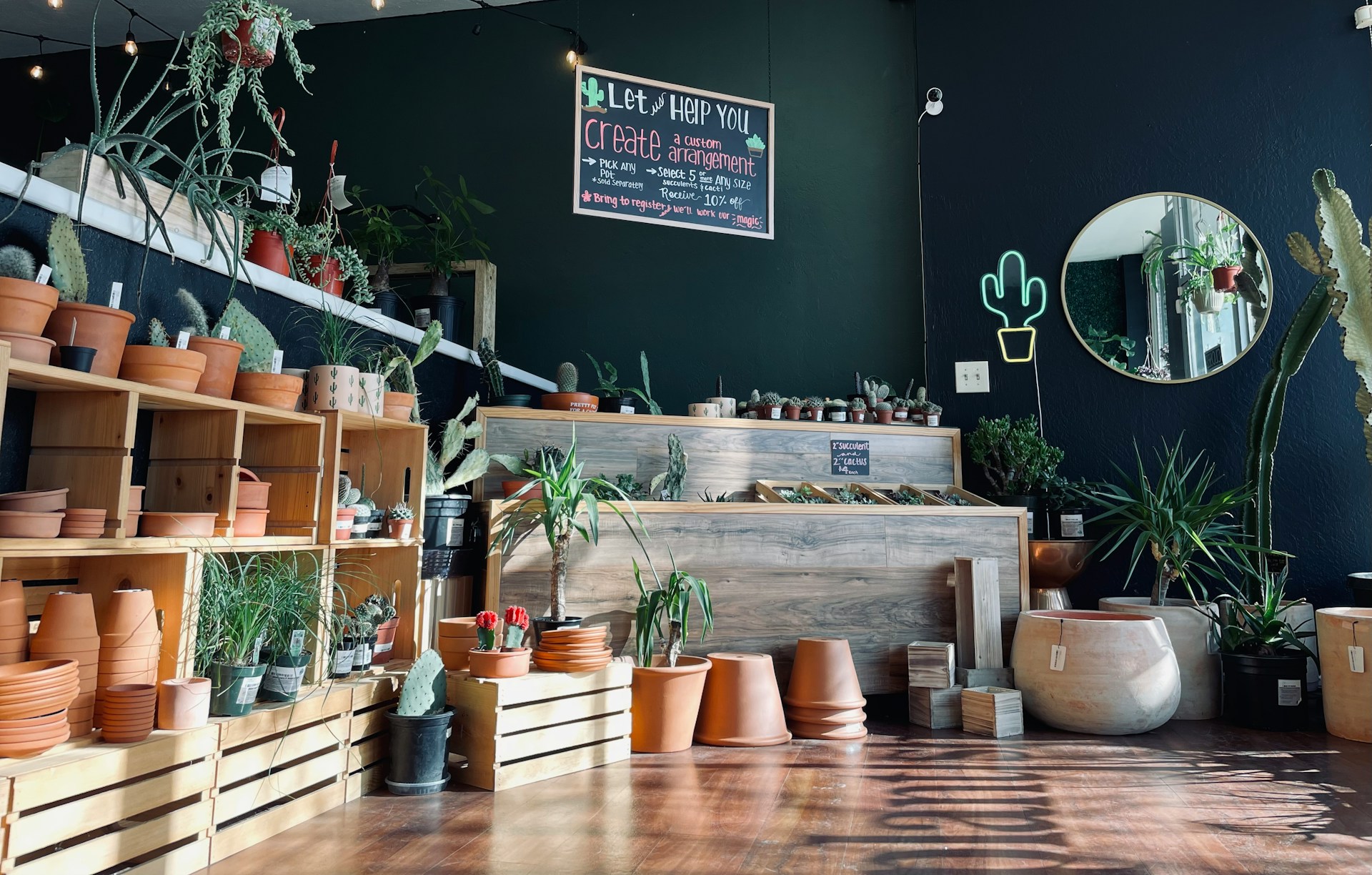What Are the Best Eco-Friendly Packaging Alternatives for UK Small Businesses?

As a brand owner, your concern extends beyond just creating exceptional products for your customers. You are also responsible for how these products reach your customers; from the packaging materials to the shipping methods. This is a time when various businesses are taking a keen interest in making their operations more sustainable, and packaging is a key area that has come under the spotlight. Eco-friendly packaging has emerged as an excellent alternative to traditional plastic-based packaging.
In the United Kingdom, small businesses are increasingly adopting more sustainable, recyclable, and biodegradable packaging materials. This shift not only benefits the environment but also enhances your brand’s reputation among eco-conscious consumers. So, what are the best eco-friendly packaging alternatives for UK small businesses? We explore some options in this detailed guide.
Cela peut vous intéresser : What Are the Most Cost-Efficient Energy Solutions for UK-Based Data Centers?
Biodegradable Packaging Materials
Biodegradable materials are designed to break down naturally over time, reducing the amount of waste that goes into landfills. These materials are predominantly plant-based, implying that they are made from renewable resources. There are various types of biodegradable packaging materials available, including cornstarch packaging, mushroom packaging, and seaweed packaging.
Cornstarch packaging is made from cornstarch, a plant-based material that is both compostable and biodegradable. It is suitable for a wide range of products, including food items, cosmetics, and small electronics. Mushroom packaging, on the other hand, is made from agricultural waste and mushroom roots. It is completely compostable and can be used to package delicate items such as glassware and electronics.
A voir aussi : How to Optimize Local Delivery Routes for UK Small Business Couriers?
Sea-based materials such as seaweed packaging are also gaining popularity. This packaging material is completely biodegradable and can be used to package a variety of products, from food items to beauty products.
Eco-Friendly Paper-Based Packaging
Paper-based packaging is a tried-and-tested eco-friendly alternative. Paper is a renewable resource and is widely recyclable, making it an excellent choice for businesses looking to reduce their environmental impact.
Cardboard boxes remain a popular choice for shipping various products. They are sturdy, lightweight, and easy to customize, making them ideal for a wide range of products. Corrugated cardboard is also highly recyclable, with many local recycling facilities accepting this material.
In addition to cardboard boxes, paper mailers are also an eco-friendly packaging option. These mailers are lightweight and compact, making them suitable for small items such as jewellery, cosmetics, and small electronics. They are also recyclable and can be customized with your brand logo and design.
There’s also the option of using paper-based fillers such as shredded paper or tissue paper, which are both recyclable and compostable. These fillers provide extra padding to protect your products during shipping.
Recycled Plastic Packaging
While it’s true that plastic has a bad reputation for its environmental impact, recycled plastic offers a more sustainable alternative. Recycled plastic is made from post-consumer waste, reducing the amount of new plastic that needs to be produced. It also helps divert plastic waste from landfills and oceans.
There are various types of recycled plastic available for packaging, from recycled PET (polyethylene terephthalate) to recycled HDPE (high-density polyethylene). These materials are robust and versatile, suitable for a wide range of products.
It’s also possible to use recycled plastic in combination with other materials. For example, you could use a cardboard box with a clear recycled plastic window for product display. This way, you can combine the recyclability of cardboard with the durability and visibility of plastic.
Compostable Shipping Mailers
Another eco-friendly packaging option that has emerged in recent years is compostable shipping mailers. These mailers are made from a combination of plant-based materials and PBAT (a biodegradable random copolymer). They break down in a compost environment, leaving behind no harmful residues.
Compostable mailers offer the same level of durability as traditional plastic mailers, ensuring that your products are protected during transit. They are also waterproof and tear-resistant, which adds an extra layer of protection.
However, it’s important to note that these mailers need to be composted under specific conditions. They require a composting environment with the right mixture of heat, humidity, and microorganisms. Therefore, it’s important to inform your customers about the proper disposal methods.
Plant-Based Packaging
Finally, plant-based packaging is another alternative to traditional plastic-based packaging. This type of packaging is made from renewable resources such as corn, sugar cane, and bamboo. These materials are not only sustainable but also have a minimal impact on the environment during production and disposal.
Plant-based packaging is versatile and can be used for a wide range of products. For example, you can use corn-based packaging for food items, while bamboo containers can be used for cosmetics and personal care products.
As we continue to move towards a more sustainable future, adopting eco-friendly packaging alternatives is no longer an option, but a necessity. It’s not just about reducing your business’s environmental impact; it’s also about meeting your customers’ expectations and enhancing your brand image. With these eco-friendly packaging alternatives, you’re well on your way to achieving a more sustainable business model.
Reusable Packaging Solutions
Reusable packaging is a fantastic alternative that enables small businesses to minimise waste and contribute to sustainability efforts in the UK. Reusable packaging involves the use of items, such as bags, containers, or pallets, multiple times before they are recycled or composted.
One of the most common types of reusable packaging is cloth bags, which can replace single-use plastic bags. These bags are made from a variety of materials including cotton, burlap, and hemp, which are renewable resources. Customers can reuse these bags repeatedly for grocery shopping or other purposes, thereby reducing the demand for plastic bags.
Another growing trend in reusable packaging is the use of glass jars or bottles. Many food and beverage businesses are now offering products in glass containers that customers can return for a discount on their next purchase. Once returned, the containers can be sanitised and reused, thus avoiding the need for new packaging.
Moreover, some businesses have begun to use reusable pallets and crates for shipping goods. These items are more durable than their single-use counterparts, and they can be returned and reused multiple times. This not only saves on packaging materials but also reduces the overall carbon footprint of the shipping process.
Climate Positive Packaging
As the name suggests, climate positive packaging goes beyond being neutral and actually contributes to reducing the amount of CO2 in the atmosphere. This innovative form of packaging is sourced from materials that absorb more CO2 during their growth than is emitted during their production and transportation, making them a net positive for the environment.
For instance, some businesses are now using packaging made from mycelium, the root structure of mushrooms. Mycelium absorbs CO2 as it grows, and the resulting packaging material is not only biodegradable and compostable but also climate positive.
Another example is packaging made from agricultural waste, such as rice husks or wheat straw. These materials are typically burned, releasing CO2 into the atmosphere. However, when transformed into packaging, they sequester the carbon that would have otherwise been released, thus helping reduce greenhouse gas emissions.
Conclusion: The Future of Packaging for Small Businesses in the UK
The way we view and use packaging is changing. With the increasing awareness of the environmental crisis and customer demand for sustainable practices, small businesses in the UK are shifting from traditional packaging options towards more eco-friendly alternatives.
The range of options is broad, from biodegradable and compostable materials to recycled plastics, paper-based packaging, plant-based packaging, reusable solutions, and even climate positive alternatives. Each offers unique benefits and opportunities to reduce a business’s environmental impact while meeting the expectations of their eco-conscious customers.
But it’s more than just about choosing the right packaging materials. It’s also about educating customers on how to properly dispose of these materials and encouraging them to participate in the sustainability journey.
In the future, we can expect to see even more innovative and environmentally friendly packaging solutions emerge as businesses strive to reduce their carbon footprint and contribute to a more sustainable world. By embracing eco-friendly packaging, small businesses in the UK can make a significant impact on the environment, enhancing their brand image and attracting a growing market of sustainability-minded consumers.
